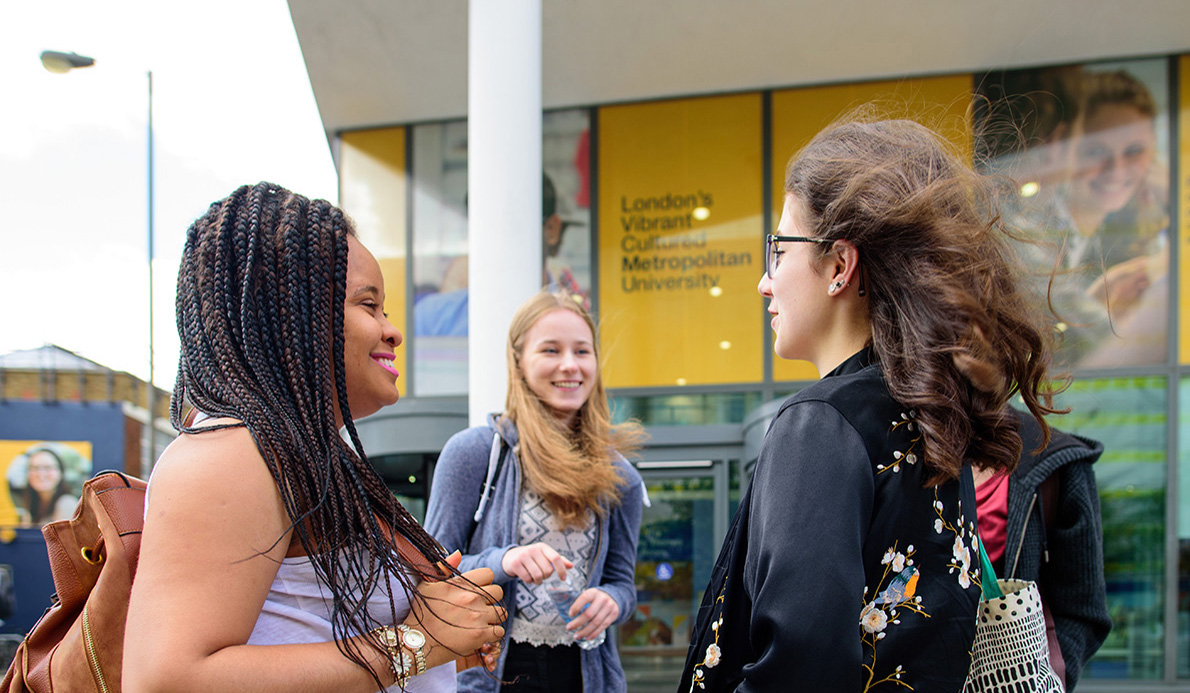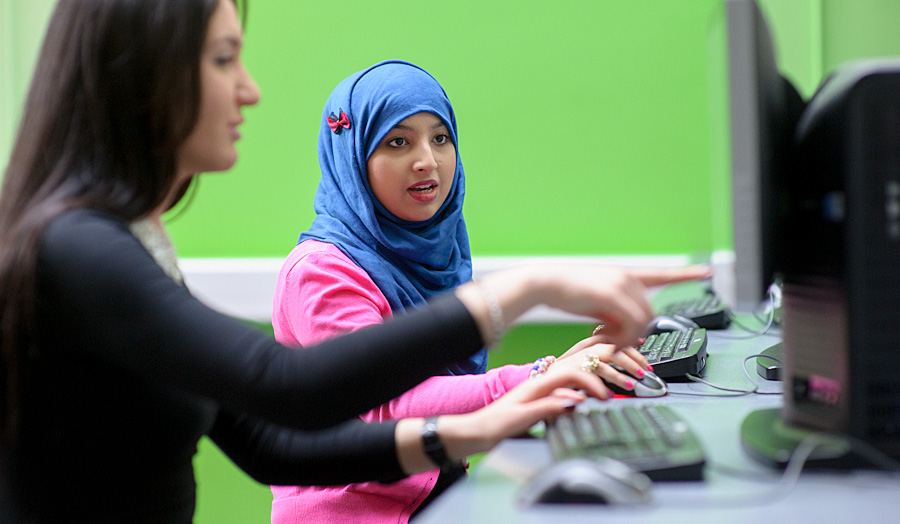At London Met we understand that the needs of international students are different to those joining us from within the UK. Here you'll find all of the information you need to make the application process as simple as possible, with details about how to apply, entry requirements and English language requirements as well as advice about moving to the UK.
We're committed to offering an excellent experience for all our applicants and students. Our September 2024 intake is no longer open to applications from international students, but, don't worry, we have many courses available to start in January and beyond. Please check individual course pages for details.
Thinking of applying?
We offer courses beginning in September, January and May. They range from one-year top-up courses and foundation/extended degrees to undergraduate and postgraduate degrees.
Choosing a course
The University's academic structure is organised into six schools, with subjects ranging from computing, science, business and law to art and design. You can take a look at a full list of the subjects we offer on our course pages. If you need any help or advice, you can also contact our international team on international@londonmet.ac.uk.
Checking the entry requirements
To study a degree here you may need to have studied a specific subject or achieved certain grades previously. Make sure you check the entry requirements before applying. You'll find these on each individual course page but you may also need to take a look at our country-specific entry requirements to see the equivalent qualifications for your country and our English language requirements.
Applying
Non-EU applicants applying to study full-time may choose to apply via the Universities and Colleges Admissions Service (UCAS) or apply directly to the University. If you're wanting to study part-time you should apply directly to the University. Apply for your chosen course by visiting the relevant course page. You can also refer to our guide to applying online. Make sure you're aware of our international application deadlines.
If you require a Student visa (previously Tier 4) and wish to study part time, you should make sure you understand which courses are eligible for this type of visa on a part time basis. Part time study on a Student visa is only available for postgraduate study at RQF Level 7 or above. For example, you cannot study a part time Bachelor degree on a Student visa.
As a part-time student on a Student visa, you are not allowed to take part in work placements through or at the University, and this may limit the course options available to you. For example, if a work placement is an integral part of the course you will not be able to study on it on a part-time basis. Please also be aware that you will not be allowed to work in your free time or bring dependants with you, so it is important you are prepared to fund your studies without working in the UK. Self-employment is not allowed at all if you hold a Student visa. Please contact our Advice Service for more information on part time study under the sponsored Student route.
Awaiting and responding to your offer
Once the University receives your application you will receive a communication from us acknowledging this. You'll also be given your London Metropolitan University application ID and details about using our applicant portal. At this point your application will enter the pending decision/consideration stage and we'll communicate with you again, either to request more information (such as a qualification transcript, portfolio, or piece of written work) for assessment, or to advise you of our decision.
If you're successful in receiving an offer from us you'll receive a communication detailing a conditional or unconditional offer and this will contain further information and instruction. If your application is unsuccessful we will also contact you advising you of this and our reasons for the decision. Read more information and advice for offer holders.
Immigration and enrolment
After obtaining an unconditional offer you'll need to focus on making preparations to join the University and come to the UK (if you're not already here). You'll receive further information about when and where to arrive and how to attend your course enrolment closer to the enrolment period of your course.
You should be considering your accommodation and finances as soon as possible before the start of term, and you should also be aware of, and be prepared to meet, any immigration requirements such as obtaining a student visa at the earliest opportunity. You can find a variety of information about moving to London on our immigration and arrival advice pages.





.png)